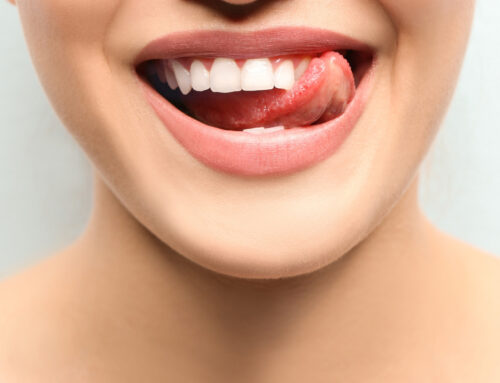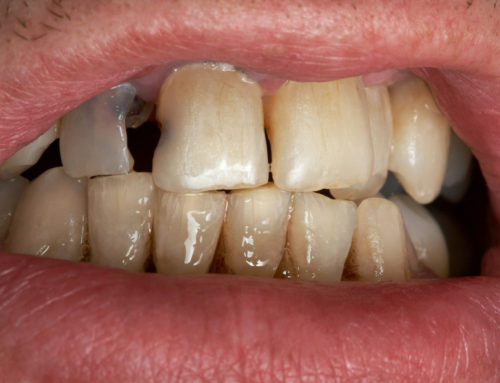We’ve all heard the saying, “an apple a day keeps the dentist away.” But is there any truth to this piece of old folklore or is it just that: folklore? As it turns out, apples are actually good for oral hygiene thanks to their Vitamin C content and ability to break down plaque. Even so, apples can’t replace a good brushing and flossing regimen—so the saying is only a half-truth!
It’s enough to get you thinking about other types of foods and their effect on your oral health and hygiene. Does what you eat really have that much of an impact on your smile? Absolutely! Take a look at some of the effects diet can have on your teeth.
High sugar in your diet
Every dentist laments a diet that’s filled with sugary treats, soft drinks, and candy. The high sugar content of these treats may be fine once in a while, but too often and they have hugely damaging repercussions for your teeth.
Sugar is the primary catalyst for tooth decay in an albeit indirect way. It’s not the actual sugar that’s doing the damage—it’s the bacteria living in your mouth that are feasting on this sugar. Bacteria whipped into a frenzy by excess amounts of sugar are going to get to work on your teeth, stripping away the protective enamel and creating cavities. Brushing, flossing and rinsing work to keep these bacteria in check, but too much sugar too often quickly becomes hard to manage, leading to big problems.
There’s a reason your doctor will scold against the consumption of sugary soft drinks, candy bars, and ice cream!
Balanced fruits and vegetables
There are plenty of reasons to eat a diet that’s plentiful when it comes to fruits and veggies, and a bright smile is one of them. Produce is particularly beneficial in a number of ways, including:
- Leafy greens like lettuce, spinach and even broccoli can actually scrub bacteria off of teeth as you consume them! Even if you end up with a piece of spinach caught in your teeth, leafy greens are working hard to keep your smile white.
- A lack of vitamins is attributed to tooth decay. Having a diet rich in fruits and vegetables means getting plentiful vitamins each day, including essentials like Vitamins B6 and B12, as well as Vitamins A, C and K.
- Apples, citrus and chewy veggies have actually been proven to improve saliva production in your mouth, which can help you avoid dry-mouth issues that may lead to gum disease or tooth decay.
Again, this is where ‘an apple a day’ might not be a bad addition to your diet! Even better is a mix of leafy greens, citrus and other tasty fruits and vegetables, spread across three square meals a day.
Staying hydrated
Your diet isn’t just about what you eat—it’s also about what you drink. If you want to maintain good oral health and avoid frequent trips to the dentist, the list of things you drink on a daily basis should be relatively short, with water topping the list.
The average person needs to drink about eight 8-ounce glasses of water each day or about half a gallon. This is at a bare minimum! If you plan on exercising or it’s particularly hot outside, you can easily double that number. More than just keeping your body hydrated, you also need to be concerned with keeping your saliva production up. Dry mouth is a breeding ground for cavities and tooth decay.
Almost as important as how much you’re drinking is what you’re drinking. Water is always the best choice, with unsweetened tea being a good second option. Beyond that, it’s important to consider the sugars and other additives and preservatives in the beverages you’re consuming. Soft drinks are by far the worst items to drink and sugary juices are close behind them. Coffee isn’t terrible, but should always be allowed to cool and consumed in moderation if your teeth are sensitive to staining.
Foods to floss about
Depending on your likes and dislikes or dietary preferences, there’s a wide world of other foods out there you might end up consuming each day. While your day-to-day intake may vary, it’s important to take care of your teeth by being cognizant about what you’re putting into your body. Here are a few simple tips:
- If you’re eating fibrous foods like cooked meat or stringy vegetables, be sure to always floss thoroughly after a meal. It’s easy for food particles to get stuck between your teeth or up in your gums, where they can fester and become problematic.
- Not enough fat in your diet can lead to dental disease. It’s a good idea to make sure your diet has plenty of healthy fats that can be easily digested. Good options include dairy products like cheese and eggs, as well as nuts and other legumes, like cashews or beans.
- Probiotic foods will help maintain good bacteria in your mouth and gut, which can keep acids low. Make sure you’re supplementing your daily diet with yogurt or cheese to help regulate your oral and gut microbiome.
- Try to avoid foods and snacks that can become caked on your enamel or, if possible, brush immediately following these meals. Hard candies, chewy taffies, sticky pastries and more can all leave your teeth coated with unwanted leftovers.
It’s good practice to brush and floss after eating whenever possible anyway. Combining these healthy habits with the proper diet and daily intake will do wonders in keeping your teeth strong and healthy.
Eating your way to a healthier smile
Put all of these tips together and you’ve not only got a recipe for a bright, beautiful smile, but also an overall healthy lifestyle! And, a body that’s equipped to stay healthy and function better is a body that’s going to be better able to take care of its teeth.
An apple a day might not be enough to keep the dentist away all on its own, but it’s a good start towards building a healthy diet that your dentist will appreciate! Modify your eating and drinking habits little by little and you’ll start to see a brighter, whiter smile and teeth that are strong and healthy.






Leave A Comment